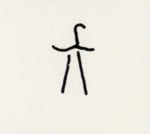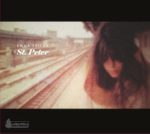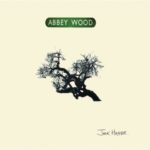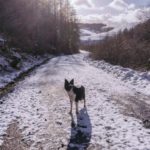Another year. The world is still broken. Everything is, if possible, even more infuriating than it was at the end of 2017. But we still have music, and 2018 has been bursting with unbelievable new albums. While it might not fix international politics, the creation of new art is more valid than ever, and more reassuring too – it reminds us that we can find enjoyment in unexpected places, and that we can say what we want.
The ten albums on my list all say what they want to say in ways that are highly original, distinctive, or accomplished. That there are so many more I could have chosen shows just how potent music can be, even when it is created in times of difficulty.
Click on the album title to read the full review.
This duo – Cretan instrumentalist George Xylouris and Australian drummer Jim White – sound like nothing else on the planet right now. Their sound combines primal, experimental rhythms with the more traditional sounds of the laouto to startling effect. Every track is a surprise: melody emerges from dissonance, traditional song-forms give way to extended jams and the unique interplay between the musicians is a constant delight. And they put on an incredible live show too, as their breathtaking performance on Green Man’s main stage proved.
The well-travelled singer-songwriter’s latest album is another one that is full of surprises. It’s a real step into the unknown compared to her previous work, with a much fuller sound (including Sonic Youth’s Steve Shelley on drums and appearances from Judy Collins and Howe Gelb). But it’s Tricca’s singular vision that drives the album, as she moves away from the influences that characterised her early work (Joni Mitchell, early Bob Dylan) into something much more diverse, influenced by country, grunge and Italian poetry amongst other things.
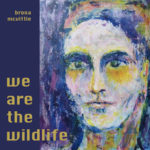
This wonderful debut has been a while in coming – McVittie has spent the last few years collaborating with the likes of littlebow and contributing to works by The London Lasses and a cappella group Rún. But We Are The Wildlife is something else entirely. McVittie emerges as an artist deeply influenced by place and by a sense of belonging in the world. She flits deftly between rural and urban worlds, between the mysteries of the natural world and the down-to-earth concerns of human life in the present, between subtle and accomplished compositions of her own and startlingly original versions of traditional songs. Glitchy electronic pop mingles with acoustic folk, and the whole thing hangs together with unexpected perfection.
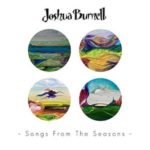
The concept behind Songs From The Seasons was a daunting one: Burnell set himself the task of recording a song every week for a year. Each song was taken from the folk tradition and had in some way to chart the process of the seasons. But the ensuing album – whittled down to fourteen tracks from the original fifty-two, and recorded with help from over twenty other musicians – was an absolute joy. Familiar songs were given spirited rewrites, old tunes were bundled into a sack and shaken up, emerging clothed in swathes of organ-led prog, psych and rousing folk-rock. More unusual songs – the Danish folk song called The Nightingale, for example – were equally well-presented, with moments of tenderness offset by cathartic guitar solos or stabs of organ. A heady mixture of folk and rock.
The former Hefner man finally released his second solo album, a mere sixteen years after the first. Was it worth the wait? Hayter’s mature, always interesting voice and his deft and delectable guitar playing say yes. And the scope of his songwriting is impressive too. Subjects include World War II troop ships, pumping stations and fairgrounds, and Hayter is particularly strong on the small details of London’s hidden corners. Psychogeography meets kitchen sink drama, in a way, but the tunes are too good, too lasting, to be burdened by transient labels.
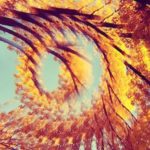
Heather Trost and Jeremy Barnes released their best record in years, and their blueprint of Balkan instrumental folk filtered through modernistic sensibilities is stronger than ever. Their influences are even more varied than usual – Turkey, Albania, Serbia, Romania and the Arabian peninsula are all visited, and the album’s guiding spirit comes from a Japanese concept. But it never feels jumbled or incongruous, which is mostly down to the duo’s musicianship. When witnessed live (they were another band whose Green Man set this year was triumphant) it is breathtaking.
Another album of mesmerising acoustic guitar compositions. While Hay’s previous work was rooted in his rural mid-Wales homeland, The Longest Day took inspiration from travel and return, resulting in a more varied record in terms of influence as well as theme. Jazz and blues emerge alongside folk as prominent starting points for these meandering instrumental tracks, and Hay’s place in the rarified lineage that includes greats like Fahey and Jansch is becoming more and more assured.
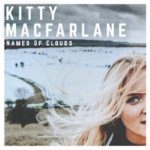
Macfarlane had been making quite a name for herself even before this highly accomplished debut came out. And now we know why: her writing is superb, grounded in the rural south-west of England but somehow full of universal wisdom. Literary references abound (there is a stunning adaptation of a Gerard Manley Hopkins poem) but it never feels ostentatious. There is joy in variety, and the sheer range of the subjects is incredible: migratory eels, maritime ghosts and meteorologists all feature. There is a naturalness to Macfarlane’s singing that is extremely refreshing. This is more than a debut with potential; it is the finished article.
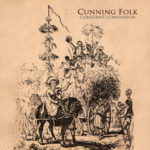
George Nigel Hoyle’s second album as Cunning Folk is essentially quite simple: a collection of familiar folk songs (mostly), recorded in live takes with just an acoustic guitar. But from these ingredients Hoyle cooks up something quietly profound, not to mention musically accomplished. The songs, some of them hundreds of years old, become his own, and the album becomes a meditation on the highly personal relationship between a musician and his material.
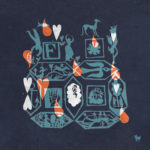
Traditional song at its saddest, goriest and most beautiful, courtesy of Lucy Farrell, Rachel Newton, Emily Portman and Alasdair Roberts. Fathoms never feels confined to the past – the Furrow Collective are masters of subtle but experimental reinvention. The distinctiveness of each individual voice and style is at the heart of one of the most arresting collaborative projects that folk music has seen in recent years.


